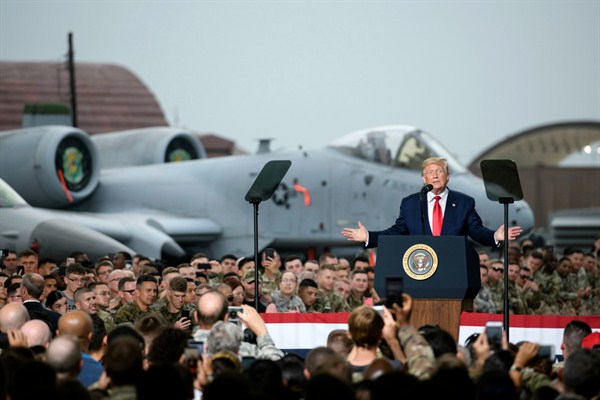Editor’s Note: This will be Steven Metz’s final weekly column for World Politics Review. We’d like to take this opportunity to thank Steve for more than six years of keen insights into U.S. strategy, national security and defense policy, all delivered with pristine logic in a uniquely direct style.
Last week, I argued that President Donald Trump’s foreign and national security policy has produced few tangible gains but has caused a dangerous decay in America’s alliances and partnerships and an erosion of U.S. global influence. Under Trump’s direction, the approach to the world that served the United States well for decades has crumbled, but there is no discernible replacement. The primary reason for that is Trump’s attitude toward statecraft, particularly his failure to follow time-tested principles of strategy. But there are three additional flaws in how Trump has handled U.S. national security and foreign policy. Is there any way to fix them?
With power dispersed between the executive and legislative branches and public support for a given policy still important, effective strategy must reflect a broad presidential vision that spells out national priorities and objectives. Then, to augment security and promote national interests, a successful president must build and empower a capable team both at the senior level and in the middle rungs of government, where much of the day-to-day work of statecraft is actually done. The president must establish and reinforce a positive command climate to ensure that this team works when he or she is not there. Successful presidents recognize the limits of their own expertise and time and thus delegate. They only personally intervene in making or implementing policy when doing so can have a major effect, such as breaking up an impasse in Congress or among their Cabinet or energizing a significant shift in policy. Presidents must be selective in how they engage, and on which issues.

